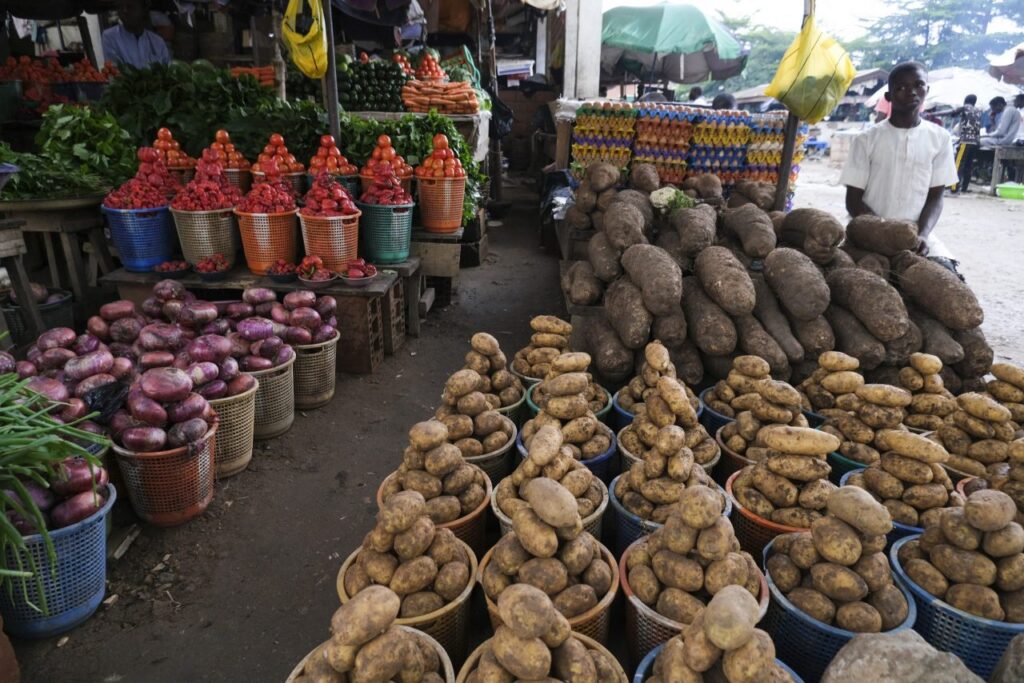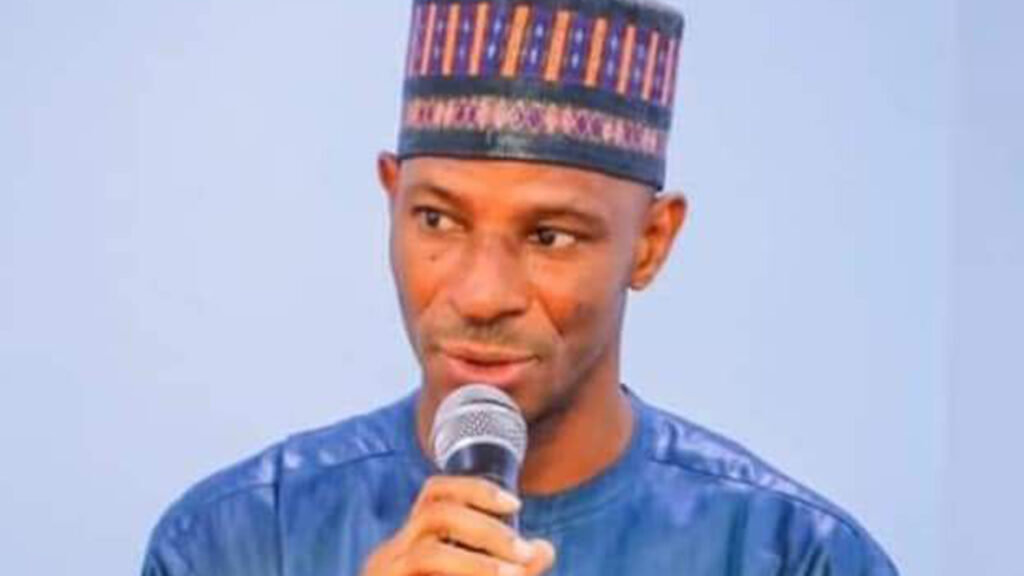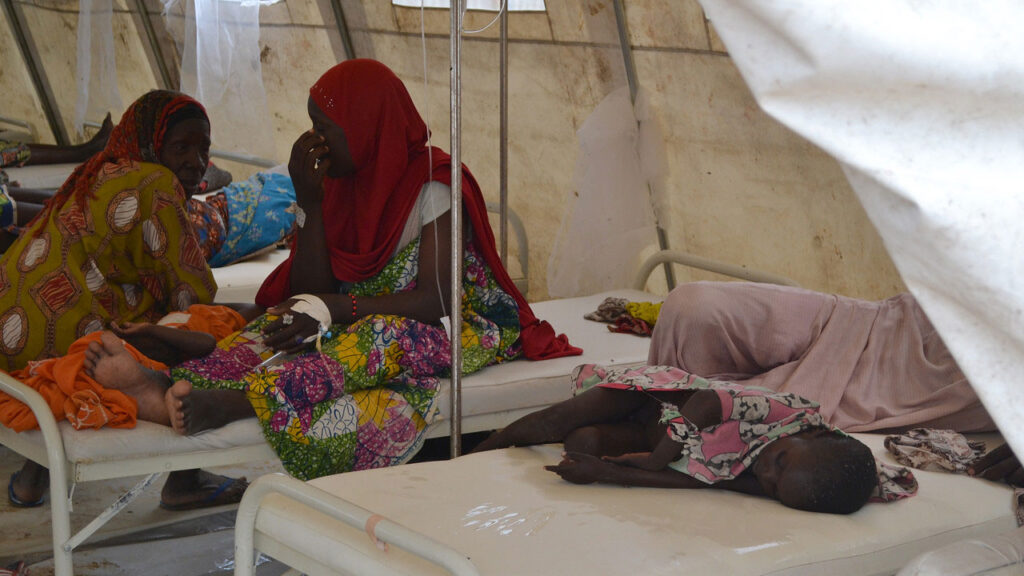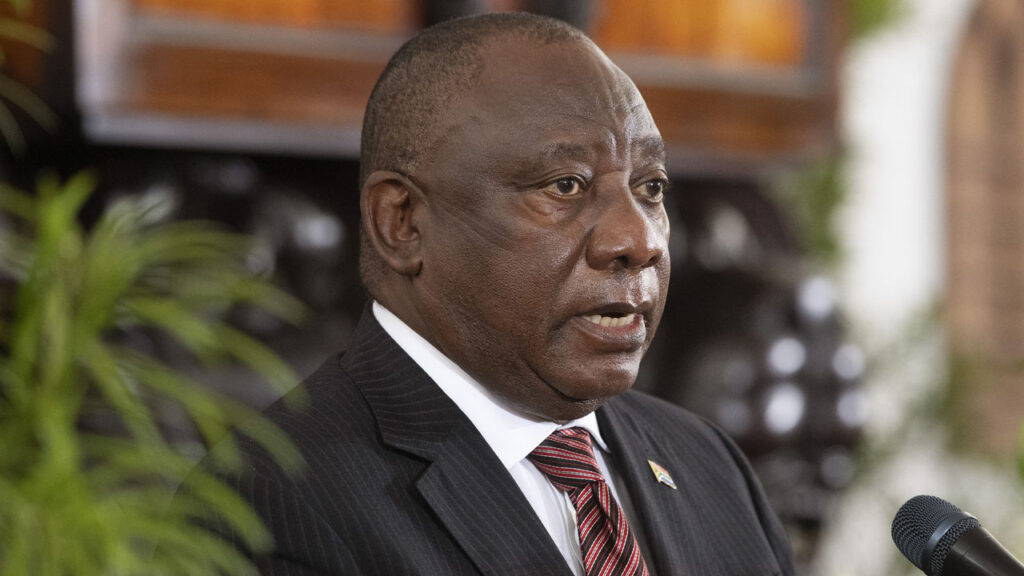
Nigeria’s Middle Belt and northwestern states have for years been caught in violence between normadic herdsman and farmers as climate change intensifies rivalries over water and land.
But that violence has spiralled into security crisis tit-for-tat attacks and expanded into widespread kidnapping, cattle theft and criminal banditary. (Photo by Kola Sulaimon / AFP)
The grant of $134 million by the African Development Bank (AfDB) to promote food security in the country is coming at the right time when food insecurity has become a major challenge. Nigerians have protested hunger and high food inflation in Minna, Kano, Oshogbo, and Ibadan while food storage facilities in Abuja, Kano and other places have been invaded by desperate Nigerians, who carted away bags of grains among other food items.
In accepting the grant, President Bola Tinubu and all the 36 state governors must realise that collecting the money is the easier part of their duties; spending it judiciously to ensure the availability of food in sufficient quantity and quality is a more major task that they cannot gloss over. So much money had been spent on agriculture by the government at federal and state levels in the recent past without much food to show for it.
Apart from the recurring natural factors of drought and flood intermittently undermining the efforts of farmers, government, in the past 10 years or so, has done little to gainfully address insecurity and vulnerability of farmers to nomads and criminal bandits killing them and forcefully taking over their farmland. Any scheme to improve agricultural production without seriously addressing these fundamental problems is doomed to fail before it takes off.
Thousands of workers, activists and students have also marched through streets of major cities to protest against high food prices. Prices of other household items have also gone up, as inflation reaches an all-time high of 31.7 per cent. Food inflation as of February was put at 37.92, prompting experts to warn of a more severe food shortage later in the year, if efforts are not geared to maximise opportunities offered by incoming planting season.
The Food and Agriculture Organisation (FAO) warned that 26.5 million Nigerians will grapple with high levels of food insecurity in 2024. The reality is that many families are already struggling to eat quality and nutritious food, on account of availability and high prices. Many farmlands have been deserted due to the activities of bandits and terrorists.
President of AfDB, Mr. Akinwunmi Adesina announced the grant at the Centre for Dryland Agriculture (CDA), at the Bayero University, Kano, promising that the bank will support Nigeria to cultivate 300,000 hectares each of rice and maize, 150,000 hectares of cassava and 50,000 hectares of soybeans during the 2024 planting season. That effort is to serve as a regional training. The bank also promised another 118,000 hectares of heat-tolerant varieties of wheat.
Moreover, talks are on with the bank for a $1.7 billion economic and budget support loan as well as the launch of a $1 billion agro-industrial process in 28 states. With this promise to assist the country overcome present food challenges, the onus is squarely on the government to play its part and ensure that these supports and the opportunities offered by the bank are put to quality use. Similar grants and support in past years have not been well managed to make them sustainable.
We recall previous efforts to expand food production in the 1990s, with the introduction of FADAMA 1, 11 and 111, a World Bank-supported pilot scheme to boost the production of rice, cassava and other food crops in selected states. Millions of dollars were spent, but the goal of attaining sufficiency in food production remains elusive.
The Anchor Borrowers’ Programme (ABP), a project designed by the Central Bank of Nigeria (CBN) to boost the production of rice is currently under investigation by the National Assembly. In 2017, rice farmers under the aegis of RIFAN, announced that 12 million producers had cultivated four million hectares of farmland, moving local production from 5.5 million tonnes to 5.8 million tonnes per annum. The projection was, with annual rice consumption put at 7.5 million tonnes, it was only a matter of few years for the country to attain sufficiency in rice production.
By 2023, the Agriculture Minister, Mohammed Abubakar claimed that Nigeria had attained sufficiency in rice production, under the purported agriculture transformation agenda of the government. Despite the N1.08 trillion spent under the Anchor Borrowers’ scheme, the United States Department of Agriculture (USDA) projected that Nigeria will import 2.3 million tonnes of rice in 2024.
The Nigerian reality is that the food produced does not match investment, a development that has tasked the National Assembly with unraveling where and how the Anchor Borrowers’ rice loans were spent. The challenge is for the federal and state governments to maximise the utilisation of this AfDB grant in a sustainable and accountable manner. The AfDB should also ensure that the government deploys the grant appropriately, with relevant timelines and deliverables.
It is also crucial that government works to avert an escalation of the desperation in the land. This is the time to invest in loans and grants where they are designed. The government should also ensure that the capacities of farmers are boosted with modern farming methods. States should take agriculture seriously and show evidence for the monies they budget yearly. Nigerians are hungry and grants secured for agriculture should not end up in workshops and paying consultancy fees.
In this era of climate change, the AfDB president canvassed that farmers need appropriate and timely information to help them adapt and adopt better ways of farming. This is the responsibility of agriculture ministries in states. States should invest heavily in agriculture and ensure that farmers are protected from bandits and kidnappers.
Governors cannot afford to lay back while their citizens wallow in economic hardship; neither can they put all the blame on the Federal Government. They are chief executives of their states, just as they are chief security officers of the states. Like the president, governors swore on oath to defend the constitution, which stipulates that the security and welfare of citizens shall be the primary purpose of government.
Wherever Nigerians are unsafe or otherwise unprotected, the first person to blame should be the governor of that state. And given the meeting, and principled agreement of governors and the president to establish state police, this is the time for governors to be very active towards achieving that agreement.
That is their best option in securing vast farmlands and farmers from marauders in the form of herders, kidnappers and other terrorists.













